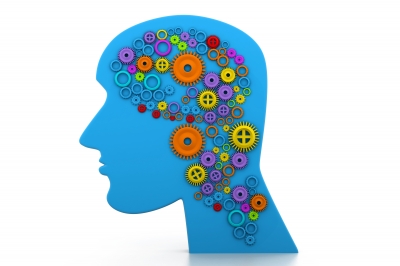According to the Alzheimer’s Association, there are more than 5 million people in the US living with Alzheimer’s disease. But researchers say they have developed a new model that could improve early detection of dementia, allowing better treatment options and potentially slowing the development of Alzheimer’s disease. Researchers from the Johns Hopkins University School of Medicine in Baltimore, MD, say the model, based on the reading of cognitive test scores, could determine whether memory loss in older adults is benign or whether it could develop into Alzheimer’s disease.
Researchers say that a new cognitive testing model could help determine if a person is showing early signs of dementia and whether they will develop Alzheimer’s disease. Although current methods of diagnosing dementia involve cognitive tests, the researchers note that the challenge for doctors is that the majority of normal, healthy people will have low scores in some areas. They add that this makes it difficult to determine whether the patient has a mild form of cognitive impairment, is in the early stages of dementia, or is free of any cognitive problems.
In a study published in the journal Neuropsychology, the investigators analyzed the records of 528 people who were referred to the Johns Hopkins Medical Psychology Clinic between 1996 and 2004 for cognitive testing for dementia. All patients were aged 60 or over. Alongside these patients, the researchers also analyzed 135 healthy older adults who were part of a study of normal aging. Both groups of patients were required to complete a series of tests involving memory, language, attention, processing speed and drawing abilities. On comparing their test scores, they were able to find a trend that they say is likely to “mimic” the deterioration of an individual’s scores over time. Explaining this further, the investigators say that Alzheimer’s disease gradually disrupts some mental abilities, while others remain stable.
Therefore, when a person starts to experience cognitive impairment, their performance shows decline in some areas. The researchers say that when these changes are shown on a graph, they cause the “healthy symmetric bell-shaped curve to become asymmetrical.” The investigators say that regardless of how low a person’s test scores were, they determined that “lopsidedness” in their scores correlated with dementia. From this, they predicted that people with evenly distributed scores were unlikely to develop dementia, but those with lopsided scores were already experiencing dementia in varying levels.
David J. Schretlen, a professor of psychiatry and behavioral sciences at the Johns Hopkins University School of Medicine and lead study author, adds “Departures from the normal bell-shaped pattern of variability on cognitive tests might determine which people with low scores develop dementia.”
Prof. Schretlen says this new statistical model could help doctors to get the prognosis correct in the early stages of dementia, meaning that patients could immediately be treated accordingly. He adds that at present, there are no effective treatments for Alzheimer’s disease, but those who are likely to develop the condition could gain extra time to do things they want to do and enter into clinical trials of medications to slow disease progression.
“If we are going to have any hope of helping patients with Alzheimer’s disease, we need to do it as early as possible,” Prof. Schretlen warns. “Once the brain deteriorates, there’s no coming back.”
Resource:
http://www.medicalnewstoday.com/articles/268696.php




